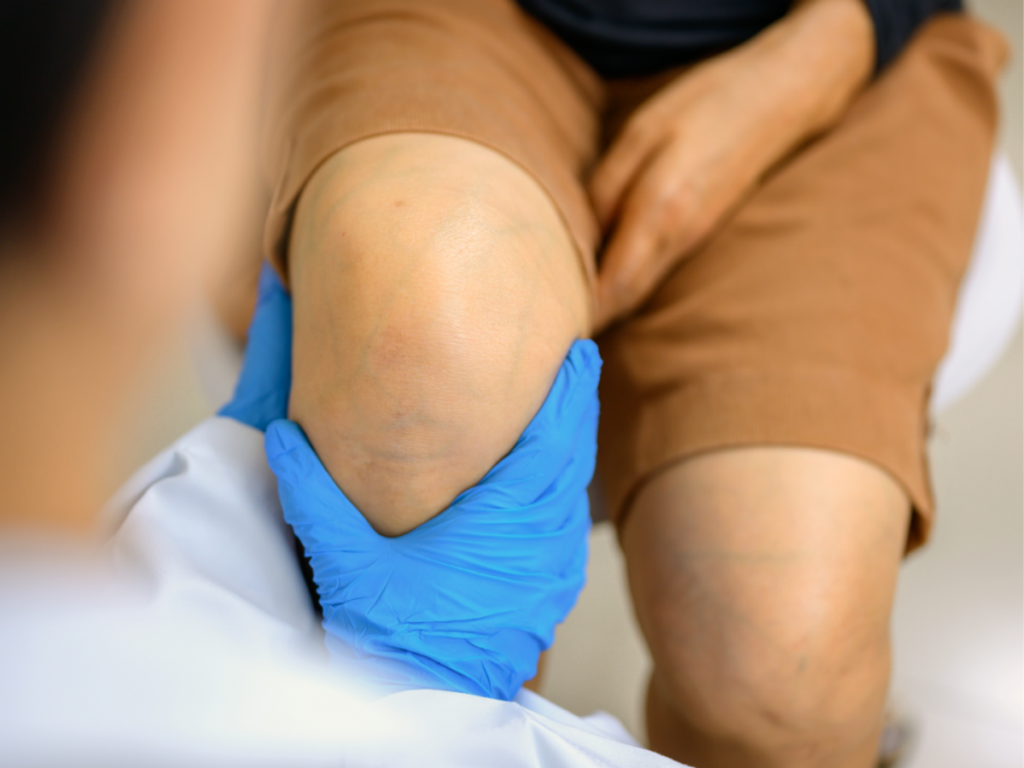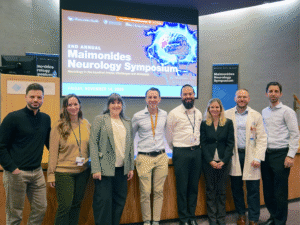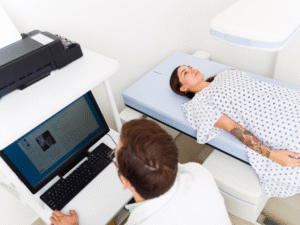Maimonides Health now offers cryoneurolysis treatments for patients experiencing knee pain due to osteoarthritis.
Applying extreme cold to targeted nerve tissue blocks nerve signals, effectively reducing or eliminating pain.
Maimonides’ adoption of this therapy on a system-wide level means even more patients will have access to the innovative pain relief technology. The hospital system has become one of only a select few providers in Brooklyn offering the treatment.
Fast-Acting, Long-Lasting Knee Pain Relief Without Medication
“We use cryoneurolysis to destroy sensory peripheral nerves to decrease pain,” says Gary Schwartz, MD, Vice Chair for Pain Management at Maimonides Health’s Department of Anesthesiology. In his personal practice, Schwartz has used cryoneurolysis for more than seven years.
“The treatment has been on the market for over a decade and is FDA-approved for use on any peripheral nerve in the body,” Schwartz says.
For now, Maimonides exclusively offers cryoneurolysis to patients with knee pain due to osteoarthritis. The treatment can benefit patients across a wide range of pain management and surgery support needs, including:
- Reducing knee pain to prevent or postpone patients’ need for knee replacement surgery
- Delivering a fast-acting, alternative mode of pain relief when other nonsurgical treatments—such as hyaluronic acid injections—have failed
- Accelerating patients’ readiness for surgery
- Speeding patient recovery times following knee replacement surgery
- Reducing the need for prescription pain relief during surgical recovery.
Treatment with cryoneurolysis can lower patients’ knee pain, enabling them to more easily adopt an exercise plan in pursuit of a target body weight or a cardiovascular health milestone before knee replacement. The treatment can also accelerate post-surgery recovery timelines.
“I’ve had many patients opt to receive this treatment two to four weeks before knee replacement surgery, with a goal to recover faster,” Schwartz says. “Following surgery, these patients typically meet their physical therapy milestones more quickly, and they have less reliance on opiates for post-surgery pain management.”
Eventually, Maimonides plans to expand its use of cryoneurolysis pain management for other common conditions, such as rib fractures and shoulder injuries.
How Cryoneurolysis Works
The treatment creates a “cold zone” around targeted nerves through the application of nitrous oxide. The nitrous oxide freezes the signal-carrying parts of the nerve, thereby blocking the nerve from delivering pain signals. This reduces patients’ pain without the use of drugs.
“The cryoneurolysis application creates a small, ice-ball lesion on the peripheral nervous tissue, which effectively ‘shuts off’ the nerve, blocking pain,” Schwartz explains. Pain reduction begins immediately, and the effects can last up to 90 days.
Applying the therapy takes around 30 minutes and can be carried out at a routine office visit. Trained providers use a handheld, needle-based device to inject the nitrous oxide into the targeted area.
The nitrous oxide creates a precise cold zone near the targeted nerve. By reducing the temperature around the nerve to roughly -88°C, the treatment temporarily freezes the nerve, preventing it from delivering pain signals to the brain. As a result, patients experience noticeably reduced pain sensation in the targeted site.
Long-Lasting Pain Relief
The cryoneurolysis process does not permanently destroy targeted nerves. Rather, it freezes the protective axon and myelin sheath around the nerves without negatively affecting their core. As a result, nerves at the application site grow back at their normal rate of roughly 0.5 to 2 mm per day, Schwartz says.
Additionally, no nitrous oxide remains in the patient’s body after treatment. As a final step in the application process, the handheld instrument harmlessly releases the nitrous oxide as a gas.
“There are no drugs. Nothing stays in the patient. It’s simply targeted application of low temperatures, and it provides immediate, long-lasting relief,” Schwartz says.
Maimonides’ launch of cryoneurolysis treatments represents a collaboration between the Maimonides Bone & Joint Center and the Maimonides Anesthesiology Department. The new service reaffirms the health system’s commitment to providing world-class orthopedic care with an emphasis on high quality of life for patients in Brooklyn.
“We have an exceptional orthopedic department at the Maimonides Bone & Joint Center, and we are constantly looking to improve the services we provide,” Schwartz says. “By offering cryoneurolysis, we can send more patients home following knee replacement on the same day as their surgery. These patients will need less medication after surgery. They’ll hit their physical milestones faster. And they’ll feel better and get back to what they enjoy doing much quicker.”
To learn more about referring patients for knee pain management, contact the Maimonides Bone & Joint Center at 718-283-7400.




